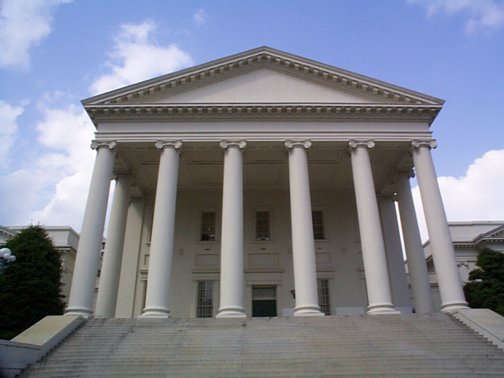In a 56-41 vote, the Virginia House of Delegates approved HB 773, a bill that would create the Government Nondiscrimination Act. This bill would grant broad protection to private entities that hold religious views against same-sex marriage, transgender people and those that have sex outside of marriage.
The bill is unlikely to go into law — Governor Terry McAuliffe has pledged to veto it should it reach his desk — but, as written, the legislation would prevent the state government from altering the tax treatment, canceling or reducing funding, or assigning contracts or other benefits on the basis of religiously-held beliefs. Proponents of HB 773 argue that the bill would protect the First Amendment rights of people of faith, while opponents counter that it will allow certain Virginians to be treated as second-class citizens.
Opponents in the House have warned that this bill is the first step in state-sponsored discrimination. According to law professor Nathan Oman, the bill does not amount to state-sponsored discrimination because it would not allow government employees to voice objections to same-sex marriage or to refuse to offer marriage licenses. He said, however, that the government’s inability to withdraw funding based on religious beliefs could be seen as discriminatory.
“It’s a far-fetched claim that this bill could lead to discrimination by government entities,” Oman said. “But to the extent that you want to pursue a policy where you were going to withhold government grants to those that voice objection to same-sex marriage and were taking action based on that belief, this law would prohibit the state from pursuing that policy.”
Oman added that, while some have suggested that the bill contradicts standing anti-discrimination laws, Virginia’s anti-discrimination legislation does not cover sexual orientation.
“Virginia has its own anti-discrimination laws, but it doesn’t cover discrimination on sexual orientation,” Oman said. “This law doesn’t give anyone an exemption from banning discrimination on sexual orientation because there is no general law in Virginia that says that.”
While there are municipal governments in Virginia that ban discrimination based on sexual orientation, Williamsburg and James City County do not have this kind of legislation. If this new bill passed, it could prohibit Virginia municipalities from banning discrimination on the basis of sexual orientation for organizations acting on religious beliefs.
This bill would not affect the College of William and Mary’s discrimination-related policies. As a public university, the College would still have the right to ban discrimination based on sexual orientation and gender identity. The new bill, however, would prevent the College from punishing a religious group on campus that denied entrance to gay or transgender students, for example.
According to William and Larry Co-President Erica West ’17, this bill will discourage prospective students.
“William and Mary is a safe school,” West said. “A majority of our students come from Virginia and a plurality of them come from Northern Virginia. Because there is so much opportunity in Virginia, a lot of people will stay in the state after they graduate. This bill disincentivizes people from Virginia to stay in the state if they are an ally or a queer person who has access to go elsewhere.”
William and Larry is a student-run gay-straight alliance that emphasizes equality and equal protection under the law for all students. They often advocate against legislation.
West said that William and Larry is looking into gathering students of faith who oppose the bill in order to make a political statement, among other possible avenues for activism.
According to William and Larry President Juliana Santanna, this bill, if passed, would limit choices for LGBTQ people.
“This is extremely problematic and something that could potentially negatively impact people even outside of the targeted group,” Santanna said in an email. “In short, discrimination is wrong whether someone identifies as LGBTQ or is simply perceived that way, and this law allows for that discrimination to occur.”

